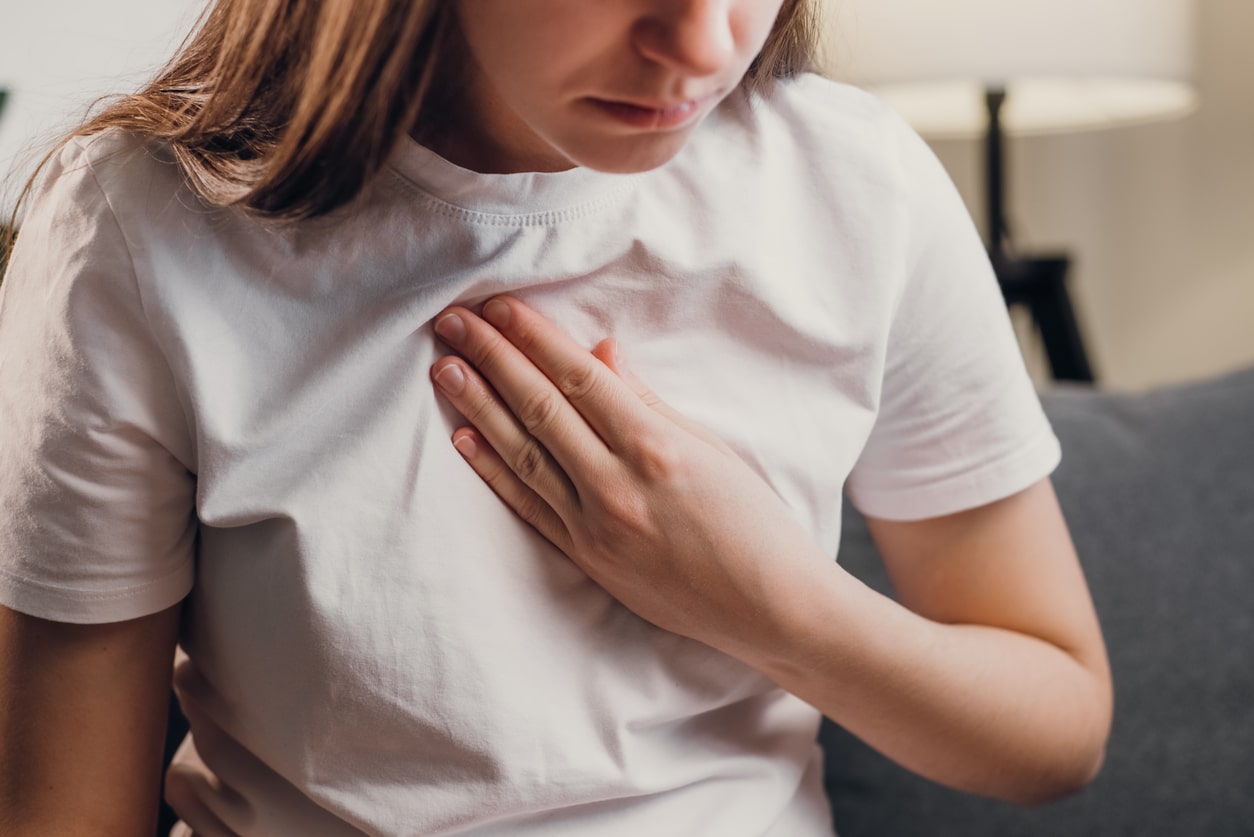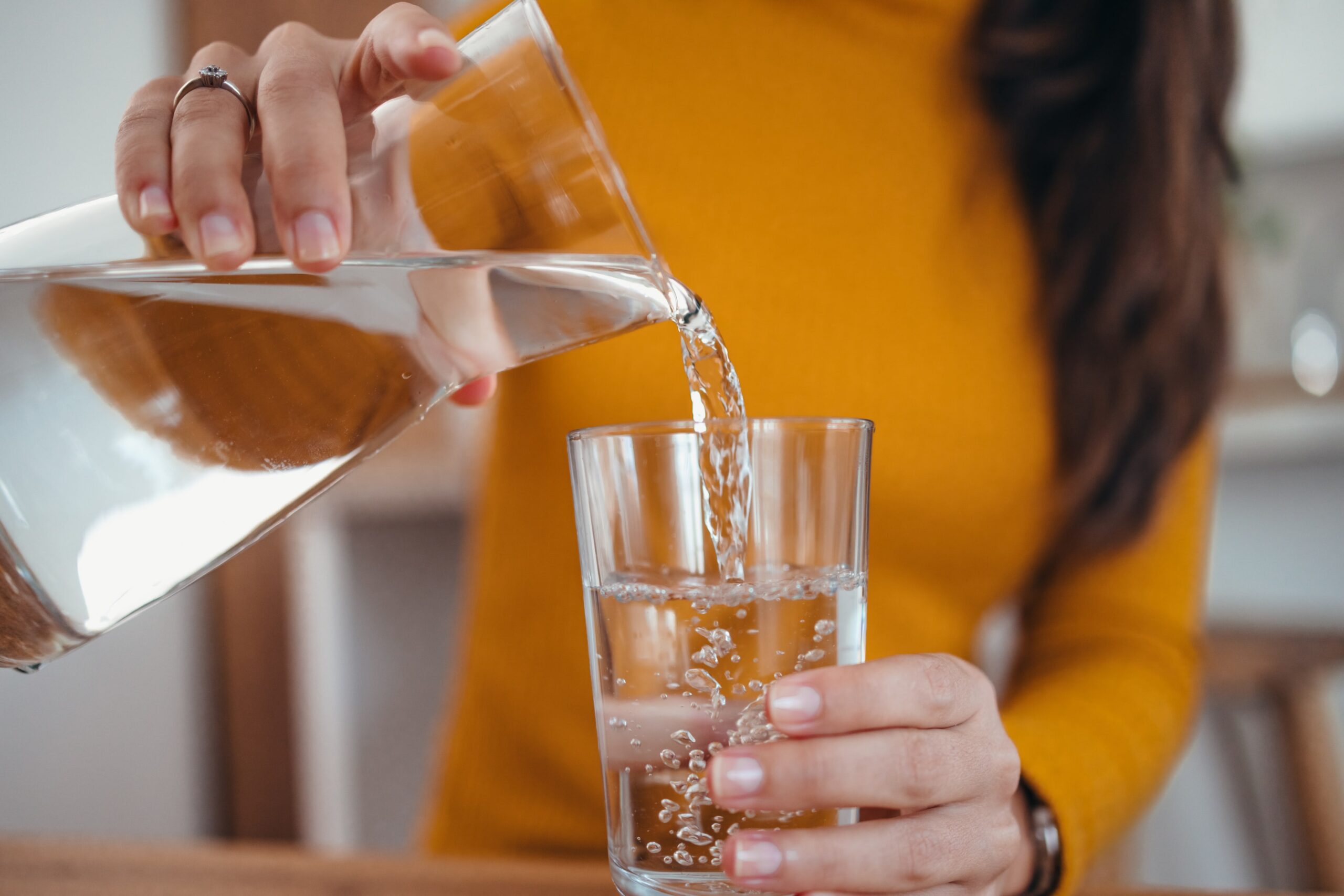
Why Does Water Give Me Heartburn?
Heartburn is more than just a minor discomfort. Though often triggered by dietary choices, even drinking water can contribute to the familiar burning sensation associated with this condition. Understanding its causes and symptoms is crucial for effective management and prevention.
What is Heartburn?
Heartburn is a burning feeling in your chest or throat caused by stomach acid moving back into the esophagus. This happens when the lower esophageal sphincter (LES)—the muscle that separates the stomach from the esophagus—doesn’t work properly. When the LES doesn’t close as it should, stomach acid can irritate the lining of the esophagus, causing pain and discomfort.
Heartburn is a common symptom of acid reflux, which can happen occasionally or more often with conditions like GERD (gastroesophageal reflux disease). While occasional heartburn might be triggered by certain foods or large meals, frequent heartburn could point to a bigger health problem.

Symptoms of Heartburn
Heartburn can cause a range of symptoms that vary in severity, from mild discomfort to more intense pain. Common signs of heartburn include:
- Burning Sensation in the Chest: A painful, burning feeling behind the breastbone is often triggered by large meals or certain foods. It worsens when lying down or bending over.
- Sour or Bitter Taste: When stomach acid reaches the throat or mouth, it can leave an unpleasant sour or bitter taste.
- Worsened Discomfort When Reclining: Symptoms can worsen when lying down or bending over. This allows stomach acid to escape into the esophagus.
- Chest Pressure or Fullness: A tight, heavy feeling in the chest that can be mistaken for indigestion or other issues.
- Difficulty Swallowing: A feeling of food or liquid stuck in the throat. It can make eating and drinking uncomfortable and cause trouble swallowing.
Can Water Cause Heartburn?
While water is typically soothing for most people, it can sometimes contribute to heartburn. For those with a weak lower esophageal sphincter (LES), even water can cause acid reflux. This is because the LES may not close properly. It normally prevents stomach acid from moving up into the esophagus. Drinking a lot of water can raise stomach pressure. This can cause acid to leak into the esophagus.
Very cold or carbonated water can sometimes irritate the esophagus or worsen symptoms. Drinking water too quickly can overload the stomach, causing discomfort and triggering acid reflux.
While water is generally seen as a neutral or even helpful beverage, certain factors—such as the way it’s consumed or an individual’s underlying health conditions—can make heartburn more likely. Understanding these risk factors is essential to better managing or avoiding discomfort.

Risk Factors
Some people are more likely to get heartburn from drinking water due to underlying risk factors. As people age, their digestive system muscles weaken, including the lower esophageal sphincter (LES). As a result, acid reflux and heartburn become more common. A diet high in fatty, fried, or spicy foods, along with caffeine, can also exacerbate symptoms, even when drinking water.
A family history of GERD or hiatal hernias may increase susceptibility to heartburn. A hiatal hernia is when part of the stomach pushes up into the chest through the diaphragm. Sleep position matters, too. Lying on the right side can worsen acid reflux. Sleeping on the left side may reduce it. Eating too quickly can also contribute to heartburn, increase stomach pressure, and impair LES function. These risk factors, plus other conditions, can raise the chances of water-induced heartburn. It’s important to manage them to prevent discomfort.
Other factors that contribute to water-induced heartburn are:
- Overeating: Drinking water and eating large meals can raise stomach pressure. This can worsen acid reflux symptoms.
- Obesity: Being overweight can pressure the stomach, raising the risk of acid reflux, even after drinking water.
- Stress: High stress levels can exacerbate acid reflux symptoms, including after drinking water. Managing stress through relaxation techniques may help reduce heartburn.
- Medications: Certain medications, like antihistamines, pain relievers, or blood pressure drugs, can relax the LES and trigger heartburn.
How to Avoid Heartburn When Drinking Water
If drinking water triggers heartburn, there are several steps you can take to reduce the discomfort:
- Sip Water Slowly: Instead of drinking large amounts at once, take smaller sips throughout the day to avoid overloading your stomach.
- Drink Room Temperature Water: Cold water can sometimes irritate the esophagus, so opt for room temperature or slightly warm water.
- Avoid Carbonated Water: The bubbles in carbonated water can increase stomach pressure, which may trigger acid reflux.
- Don’t Drink Too Much Before or After Meals: Drinking large quantities of water around mealtime can increase stomach pressure, making acid reflux more likely. Instead, space your water intake throughout the day to avoid overloading your stomach.
- Stay Upright After Drinking Water: Remaining upright for at least 30 minutes after drinking can help prevent acid from rising into the esophagus.
- Consult a Doctor: If heartburn persists despite these changes, it may be worth seeing a doctor to rule out conditions like gastroesophageal reflux disease (GERD).

Lifestyle Modifications to Prevent Heartburn
Broader lifestyle changes can also help manage and reduce heartburn. Consider the following:
- Eat Smaller, More Frequent Meals: Instead of consuming large meals, try eating smaller portions throughout the day to reduce the likelihood of acid reflux.
- Elevate the Head of Your Bed: If heartburn often occurs at night, elevating the head of your bed can help prevent acid from flowing back into the esophagus while sleeping.
- Limit Trigger Foods: Certain foods, such as spicy, fried, or fatty dishes, can increase the chances of heartburn. Reducing their consumption may help reduce symptoms.
- Quit Smoking: Smoking can weaken the lower esophageal sphincter, making it easier for stomach acid to flow back into the esophagus.
- Maintain a Healthy Weight: Excess weight, especially around the abdomen, can put pressure on the stomach, increasing the likelihood of acid reflux.
Preventing Water-Related Heartburn
While water is essential for health, it can sometimes trigger heartburn in sensitive individuals. Knowing your triggers and taking precautions, you can stay hydrated and avoid discomfort.
Don’t let persistent heartburn interfere with your daily life and wellness. Contact our expert team at Gastroenterology of Greater Orlando today. We offer personalized care and treatments for your heartburn. Schedule an appointment now to take control of your digestive health and find lasting relief from heartburn symptoms.